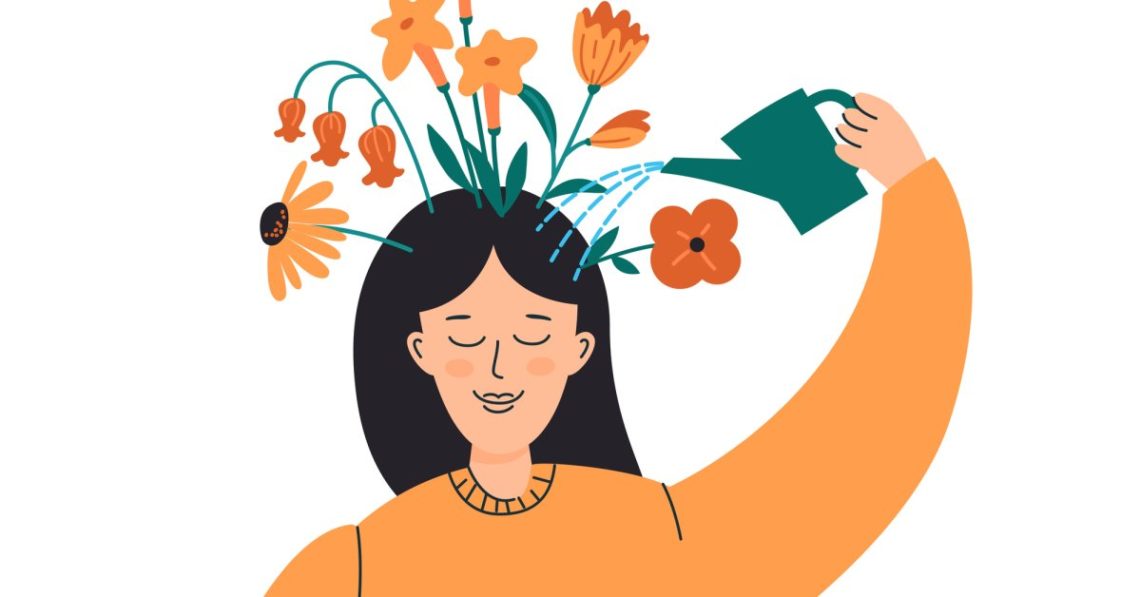Do you feel like the world (and your mind) is spinning? As if the ground beneath your feet isn’t safe or solid?
We now have access to an unprecedented amount of knowledge, data, and information brought to us in seconds. Artificial intelligence and complex crises are amplifying the pace and scale of change, from economic and political shifts to the flow of information, making it harder for us to see the big picture, and adapt and reflect.
In this uncertain and fast-paced world, we need more than just logic and data to navigate. We need a strong inner compass—a well-honed intuition.
Intuition has often been dismissed as vague or unscientific. But that’s changing. An emerging body of evidence shows that a well-trained intuition, what we sometimes call “gut feelings,” is key to our ability to make good decisions and innovate, especially in times of uncertainty.
Intuition enables us to process a massive amount of information and sensory data, which we pick up with our whole body, not just the brain. It does this much faster than our conscious, focused mind.
In The Intelligence of Intuition, Gerd Gigerenzer explores how intuition is our defining difference in the age of AI, and that without intuition, there wouldn’t be much innovation. A 2017 study of a group of Nobel laureates showed that intuition played a major role in their discoveries, helping them connect seemingly disparate ideas and come up with “aha moments”. A 2022 research study in the field of management argues that intuition and sense-making are indispensable for constructing knowledge, particularly in today’s complex and uncertain context.
But connecting to our intuition can be difficult in our overstimulated world. Social media, the 24-hour news cycle, and the clutter of modern life vie for our mental space. We’ve become disconnected from our attention—and our own bodies.
Read More: How Insecurity Became the New Inequality
I know this from my own experience. In my ‘20s, I worked in post-conflict development for the United Nations in Kosovo. I spent a year there, but it felt like 10 years packed into one. Going to Kosovo was like walking into an open wound. I could see and smell the aftermath of conflict in the air, in people’s eyes, and in the ruined houses and buildings.
I wanted to make a difference for the victims of war and contribute to a better future. But I had no idea how to set personal boundaries, nor did I even understand why that was important. I believed that taking time for myself, to recharge my batteries, would be a sign of weakness. My sleep deprivation grew, as did the nerve pain from slipped discs in my spine. And without my knowing, a new life was quietly forming inside me.
One night, during a layover in Frankfurt Airport, on a work trip from Kosovo to Kazakhstan, I felt terrible pain and started to bleed. I didn’t think much of it— I just took some painkillers and continued my journey. It was only later that I realized I’d had a miscarriage. Whether I’d been pushing myself too hard or the pregnancy just wasn’t meant to be, this experience showed how disconnected I had become from my own body and emotions.
It was only a matter of time until the circulation system of my mind, body, and soul froze to a halt. I hit a wall and was forced to connect within, as I had nowhere else to go. And it changed my life.
During the process of healing, I returned to my home country, Iceland. In Icelandic, the word for intuition is InnSæi. The word is poetic and evokes “the sea within,” the flow of our unconscious mind. If we put the sea within into boxes or silos, it ceases to flow. When we lose sight of the flow of life, we’re less able to connect the dots and see the big picture. When we suppress our emotions and ignore our pain, “the sea within” freezes and turns into a glacier. We lose access to one of our most powerful tools for resilience, connection, meaning, and clarity.
When we lose connection with our intuition, we lose our inner harmony that allows us to act with mastery and ease, as anaesthesiologist Ronald W Dworkin describes so eloquently in a recent Aeon article. In today’s world, we also have a tendency to rely more on experts, browsers, and technology than our own judgment. As British physician Dr. Rangan Chatterjee said in a recent interview: ‘We’ve outsourced our inner expertise.”
It’s time to reclaim it. But to be able to align with our intuition, we need to become the stewards of our own attention.
Start by paying attention to what you pay attention to, and document it in your journal. Attention journaling is a powerful tool to notice what our busy attention is picking up and filling our senses with. Notice with your whole body, skin, gut, and heart.
Mind the inflow to improve the outflow. Mindfully create more headspace and clarity by filtering what you pay attention to, such as ads, media, and toxic relationships. Create space in your days for your mind to wander, to be inspired, and to find joy.
Actively sense and observe gut cues and signals from your surroundings. Train yourself to understand your environment, teams, and markets through your senses and intuition. Learn to discern intuition from biases and “misintuition”.
How we pay attention “is a moral act,” to quote Dr. Iain McGilchrist. What we pay attention to changes us and the world we experience. It brings certain aspects of things into being while others recede.
In an age of information overload, uncertainty, and search for meaning, a well-honed intuition is a powerful inner compass that can help us find our way with greater clarity and purpose.
The post The Surprising Science Behind Your Intuition appeared first on TIME.




